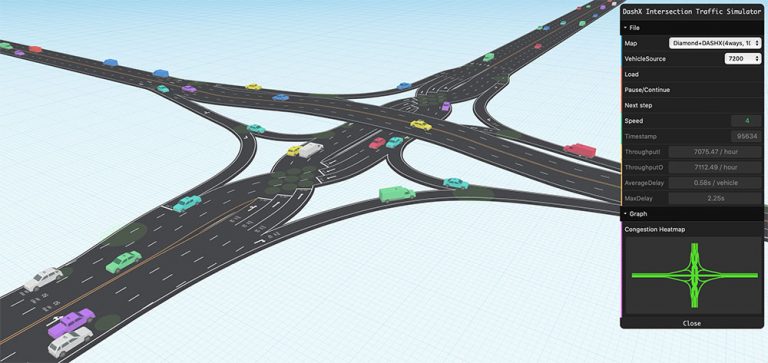
No More Red Lights? Proposed System for Self-Driving Cars Eliminates Need to Stop
Imagine getting through your evening commute safely and seamlessly without ever having to wait at a red light or stop sign. That’s what one research team at Mizzou Engineering is studying in anticipation of roadways filled with self-driving cars.
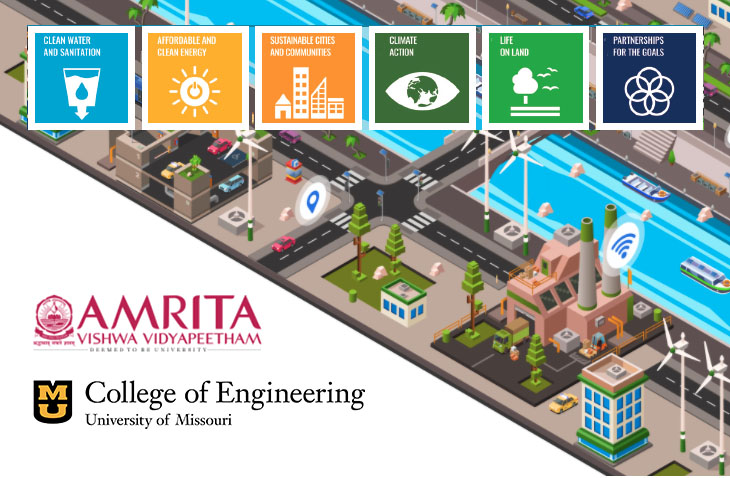
Partnership with Amrita Kicks off with International Symposium
Mizzou Engineering has formed a partnership with a top-ranked university in India to foster collaboration among researchers and students. The partnership between Mizzou and Amrita Vishwa Vidyapeetham aims to promote cooperation through joint research and publications, international initiatives, training programs and student exchanges.

Computer Science Student Takes First at IEEE Competition
Chenxi Zhao, a Mizzou Engineering graduate student, took first place in his category at an IEEE competition held virtually this past weekend. The IEEE St. Louis student presentations competition is under the umbrella of the Institute of Electrical and Electronics Engineers, the largest technical professional organization in the world.

Mapping the Cities of the World One Building at a Time from Space
A group of four computer science PhD students in the Computational Imaging and VisAnalysis Lab at Mizzou Engineering took the top spot in the graduate student category at the 24th Conference on Neural and Information Processing Systems SpaceNet 7 competition.
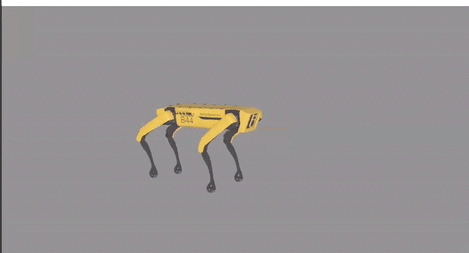
Students Now Putting Spot the Robot to Work
Watch as sophomore Stephen Bowen explains the programming used to code Spot (Video courtesy of Kristofferson Culmer) It’s not quite dancing in viral videos just yet, but Mizzou Engineering’s Spot is getting a little smarter each day, thanks to an inaugural group of student programmers. Spot is an agile mobile robot from Boston Dynamics perhaps…
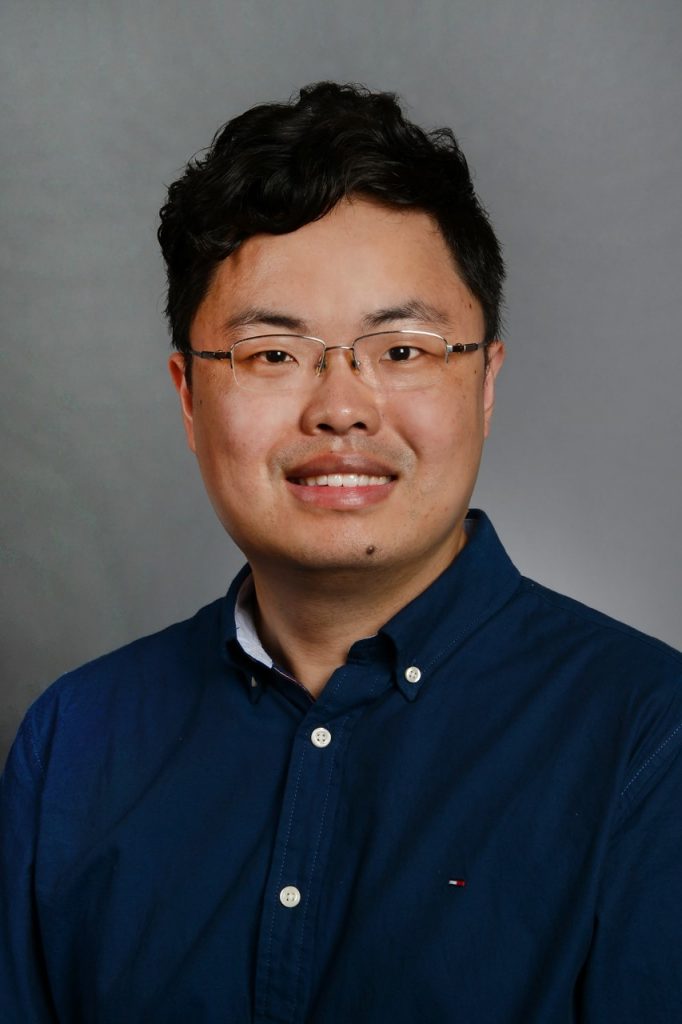
Detecting COVID-19 with a sticker on your skin
One day, a wearable, bioelectronic device could wirelessly transmit a person’s vital signs — potentially providing critical information for early detection of health issues such as COVID-19 or heart disease — to a healthcare provider, eliminating the need for an in-person visit while also saving lives.
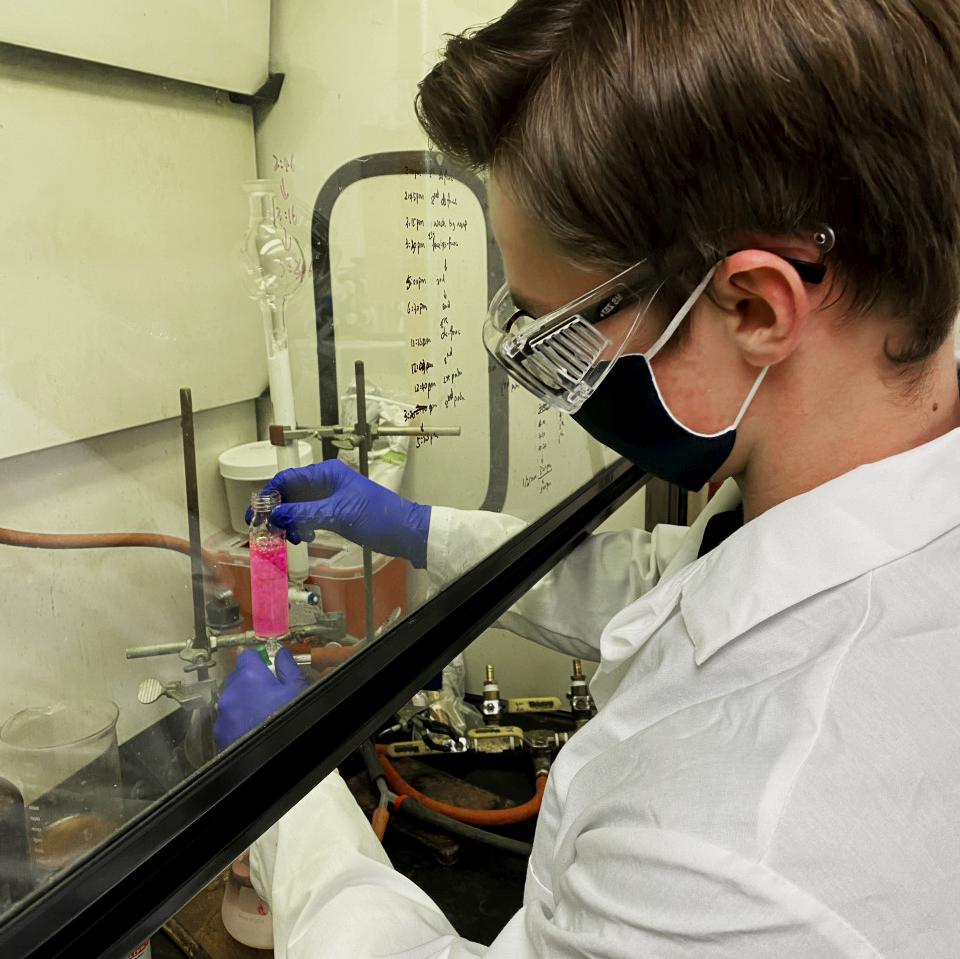
Developing a targeted delivery system to treat cancer
In the ongoing battle to find ways to treat cancer, a team at the University of Missouri is addressing the problem from multiple angles, but with a precision approach. Cancer patients are often given chemotherapy, cancer-fighting drugs that kill cancerous cells and can also have harsh effects on healthy cells. But with recent developments in medical technology, researchers have started developing targeted approaches known as precision medicine, and the new treatments can cause less collateral damage to the body.
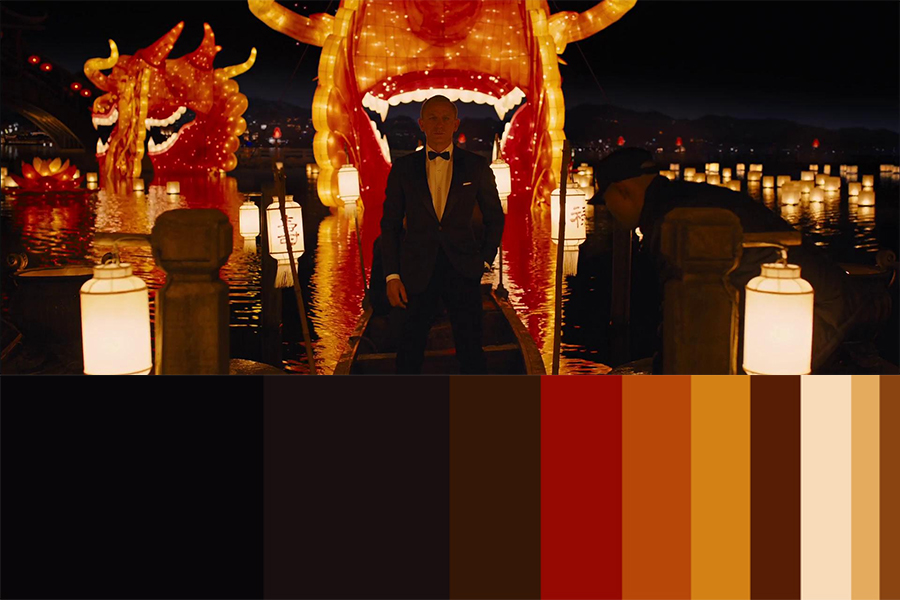
Coloring Outside the Lines: Research to Quantify Color Palettes of Award-Winning Films
Filmmakers rely heavily on color palettes to invoke a mood or set a tone in cinema. But do human brains actually pick up on those strategic color schemes? That’s what one Mizzou Engineer hopes to discover over the course of the coming year.

Lessening Noise Pollution Through Metamaterials
Those working in open office spaces may someday have a little more privacy, thanks to a new wall partition in the works at Mizzou Engineering. Guoliang Huang, James C. Dowell Professor in the Department of Mechanical and Aerospace Engineering (MAE), is researching the best acoustic metamaterials and structure component to create a new, thin, sound-proof multi-functional wall for open office layouts.
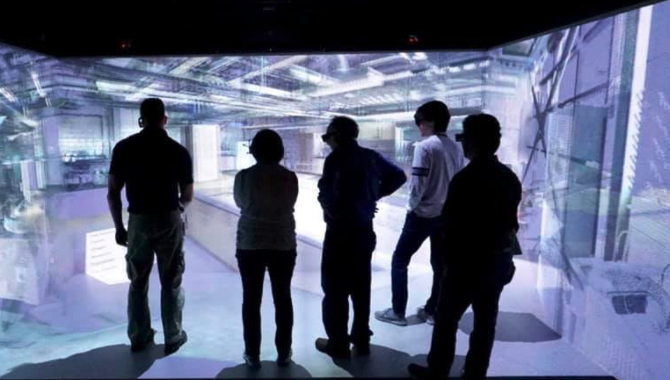
CAVE to Provide Immersive Virtual Experience
Imagine studying a protein by walking through its three-dimensional structure. Or researching traffic patterns by standing alongside a virtual highway. Or safely exploring the structural integrity of a house while it’s on fire. Mizzou Engineers will soon have the capability to do these things, thanks to a CAVE opening this year in Lafferre Hall.